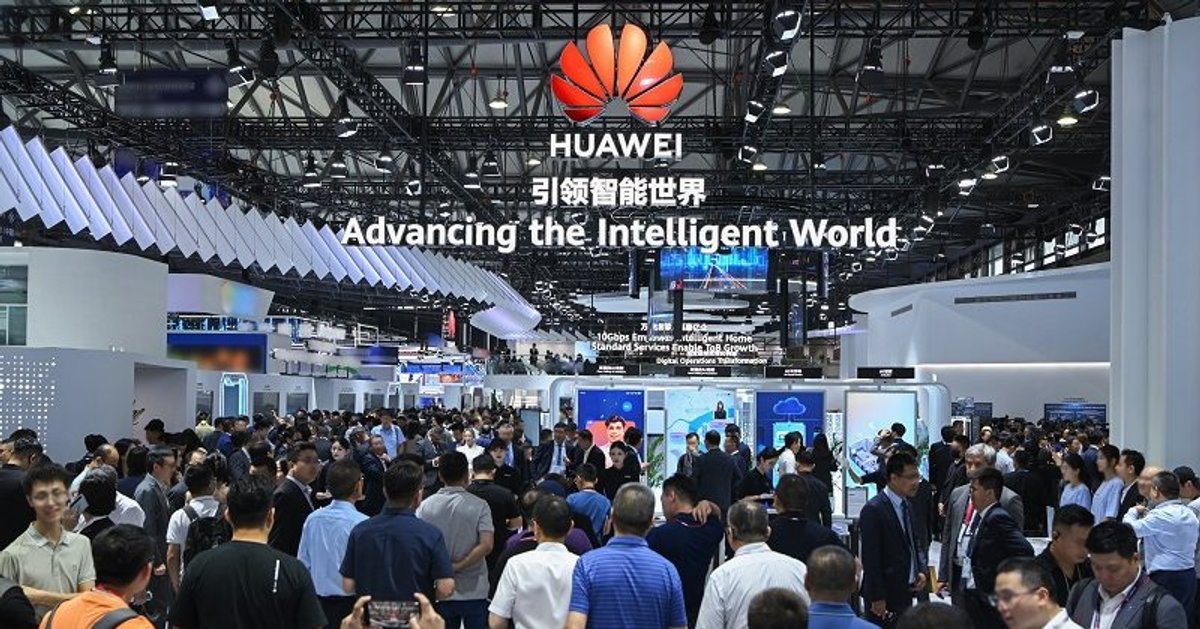European tech protectionism is grounding our flights – Washington Examiner

Let’s play a game: Name a major tech company that has come out of Europe in the past 15 years other than Spotify. Nothing comes to mind? That is because the European Union is a tariff cartel that crushes its own member states’ innovative prowess, overregulates any U.S. companies that do manage to penetrate, and then raids its coffers for good measure. This has disastrous consequences, not least of which was the recent CrowdStrike crash.
The EU is comically far behind the United States, China, and even India in tech innovation. This should not be the case: Europe is a continent of advanced economies with some of the highest levels of educational attainment in the world and a consumer market larger than that of the U.S.
Despite these advantages, the EU’s anti-innovation tech policy has crushed economic output. Current EU states have seen their share of global gross domestic product cut in half since 1980. Determined to spread the misery, Eurocrats have long imposed frankly ridiculous requirements on businesses in the U.S. that are seeking to serve their consumers. Since 2009, Microsoft has labored under an agreement with the European Commission to allow kernel access to third-party software developers. This means it is impossible for Microsoft to wall off its operating system in a way that would provide enhanced cybersecurity or even consistent maintenance and upgrades.
“A Microsoft spokesman said it cannot legally wall off its operating system in the same way Apple does because of an understanding it reached with the European Commission following a complaint,” according to the Wall Street Journal.
This was a major factor in the CrowdStrike crash that grounded flights, crashed laptops, and briefly knocked Sky News off the air. CrowdStrike, which offers cybersecurity for 60% of Fortune 500 companies and most U.S. states, updated its software in a manner that became incompatible with certain Microsoft systems since they were not able to update easily in tandem under EU rules.
Again determined not to contain failure, the EU passed the Digital Markets Act in May of last year to target successful U.S. tech companies that do business in Europe. This law is currently being used to try to force Apple to allow similar kernel access. For Apple, this would devastate its entire brand, which depends on the reliability and interoperability of its products to the exclusion of others. Moreover, it would actively harm consumers by taking away the one vendor that currently offers cybersecurity measures capable of resisting a major cyberattack. Apple would be newly vulnerable to a CrowdStrike-like event.
CLICK HERE TO READ MORE FROM THE WASHINGTON EXAMINER
The Digital Markets Act has also been the mechanism for EU officials to levy fines against Meta, Apple, Google, and Microsoft. Though not working directly for the EU, French regulators have made clear that NVIDIA is next. Europeans are not building any technologies that provide the services of these companies, so European governments invite them in and then punish them for being the only players in their space, usually by extracting a multibillion-dollar payment for the privilege of serving their market. One begins to suspect that the real purpose of the law is a wealth transfer from U.S. multinationals to the EU government.
EU tech policy ultimately reflects the socialistic, small-minded parochialism that prevails among the Eurocrats. They make it impossible for ambitious Europeans to succeed, chase them to the U.S., and then enviously punish companies in the U.S. for succeeding. U.S. regulators could doom our success stories to a similar fate if they emulate these petty tyrants.
James Erwin is a native of Yarmouth, Maine, with a B.A. from Bates College. He is a Young Voices contributor working on free speech and tech policy in Washington, D.C.
Related
Meet three incoming EU lawmakers in charge of key tech…
The European Union looks to have clinched political agreement on the team of 26 commissioners who will be implementing President Ursula von der Leyen’s polic
Huawei: Tech Challenges & Opportunities for Europe
The European Union's ambitious Digital Decade 2030 plan sets forth bold targets for digital infrastructure, skills and business transformation. However, recent
EU regulators scrap probe into Apple’s e-book rules after complaint…
EU antitrust regulators on Friday (22 November) closed a four-year-long investigation into Apple's rules for competing e-book and audiobook
Belgian unicorn Odoo raises €500M, Northvolt files for Chapter 11, and…
This week we tracked more than 95 tech funding deals worth over €2.5 billion, and over 15 exits, M&A transactions, rumours,











